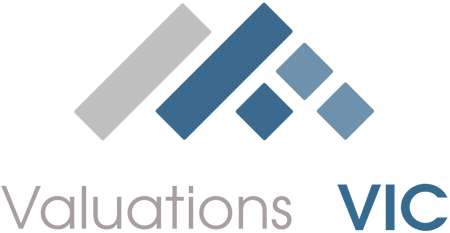
Property is one of the biggest investments and highest-valued assets that people own, whether it’s a primary residence or an investment.
A property valuation establishes the current market value of a building or any other tangible asset. The backdated value can also be determined by a retrospective valuation. There are many instances in which you’ll need to know how much your property is worth at present or in the past. If you’re ever in need of a valuation, you can count on a Certified Practicing Valuer in Victoria. Theirs is a highly recommended service.
Different techniques and methods are used to sum up the value of real estate. The three most common methods are as follows:
- The income approach
- The comparison approach
- The cost approach
When doing an inspection, valuers can use one or combine all these methods. When more factors are considered, and property is looked at from all angles, a fully comprehensive and accurate report can be prepared. Meaning the more methods used, the better.
Now that we have a general understanding of what property valuation is, let’s take a look at its benefits and methods in more detail.
Why are valuations so important?
Property valuations are important because you have a lot to gain from knowing how much your tangible assets are worth. Not just anyone can determine the actual value of your property. It requires years of refinement through education, training and experience.
Buying and maintaining real estate is a costly process. If you’re selling, it will be fulfilling to get a good return on investment or get back how much you put in to buy and keep it in good condition.
Some of the advantages of a property valuation include:
- Being aware of different investment options
- Negotiating a fair sale price
- Settling legal matters
- Confirming your tax obligations
- Safely procuring mortgage collateral
- Taking out a suitable insurance policy
It will also come in handy if you’re looking to make worthwhile improvements or renovations to your home so that you can amp up its value. The benefits of a valuation are endless.
Pre-sale and pre-purchase valuation
Knowing the value of a property before selling or buying it is paramount. This is one of the common reasons why people request a valuation.
Knowing how much your property is worth can help you set a decent sale price. The buyer must also be aware of the market value. Making an informed decision to invest or not will then be easier.
The current market value determined independently is essential for setting a fair and accurate sale price.
Property valuation for mortgage security
Mortgage lenders value property to assess the risks before approving a loan. From there, they’ll determine how much they are willing to lend. A practical interest rate and other loan terms can then also be decided on.
The risk assessment is important to ensure that an appropriate amount of money is lent. The value of collateral, as well as the borrower's ability to repay the loan, are all included in the risk analysis.
Property valuation for litigation
Knowing how much your assets are worth is important for estate planning and settlement. When an estate owner passes on, everything they left behind needs to be valued for inheritance tax purposes. This usually follows probate which involves an executor and lawyers.
Divorce settlements also call for a property valuation. If the couple separating disputes the value and distribution of the assets they share, it may just end up in the family law court. A CPV is then needed to prepare a long-form report and stand as a witness to confirm the value of the property.
Valuation reports prepared for litigation purposes ensure that beneficiaries receive their fair share of the assets.
What are the methods of valuation?
Property valuation plays a vital role in the real estate industry. It determines the selling price of a property and helps current and potential owners thereof with making smarter decisions.
The value of a property is subject to the method used during a valuation. There is a whole range of methods that valuers are taught and trained on. These are the three most common ones that are applied to different types of real estate:
- The sales comparison approach
- The cost approach
- The income approach
The Sales Comparison approach
This method is easy to understand. It involves comparing the value of the subject property to similar ones in the same area. The comparison approach is often used for residential properties.
Only an estimated value can be determined using this approach. Elements like location, size, age and condition are examined when this approach is applied. This method depends on the valuer’s judgement of the similarities and differences between the comparable properties, making it subjective.
The income approach
The income approach is commonly used for commercial properties. These include office buildings, shopping centres, and apartment buildings. This approach reflects the value of properties based on the income they can generate.
These are the factors that it takes into account:
- Rental income
- Upkeep and utility expenses
- Capitalisation rate
This approach is more precise because there is actual information and more market data available for the valuer to refer to. It also requires a good understanding of the real estate market and potential incomes.
The cost approach
This method determines how much it would cost to replace a building. The following are included in the calculation:
- The current market value of the land
- The cost of construction
The cost approach is often used for special-purpose facilities like hospitals and schools. It doesn’t necessarily reflect the market value of the property, but it does give an estimation of its value according to its cost to rebuild.This can be used for any type of property as a secondary method or as a primary method for insurance purposes.
Summary
A lot of time, effort and money goes into purchasing real estate. A valuation report can help in many situations, from pre-sale and pre-purchase to tax and legal proceedings.
There is a handful of methods used throughout the valuation process. Each method has its pros and cons. The three frequently used ones are the cost, asset and sale comparison approaches.
The comparison approach is useful for residential properties, while the income approach is suitable for commercial properties. The cost approach is commonly used for special-purpose properties. Separate approaches are used to value businesses and development projects. The valuation method applied depends on the type of property, the purpose of valuation, and the market data available.
An independent valuation is essential to make informed decisions and ensure fair transactions. This makes it even more important to hire a professional valuer to determine the true value of your property.
Contact us to find out more about the importance of property valuation and its methods.







